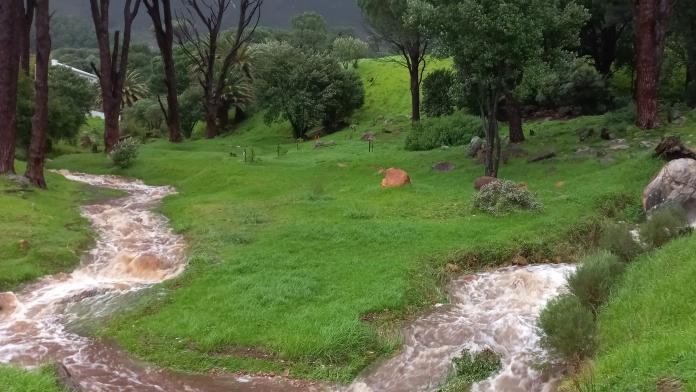This project involved designing and facilitating peer-to-peer learning to enhance understanding and practice of climate change adaptation and resilience at the national and municipal levels. The work included analysis and knowledge sharing of resilience building for two main adaptation challenges, floods and droughts, with a focus on eThekwini and Nelson Mandela Bay.

Background
Climate change poses an increasing risk to cities as hubs of social and economic activity. In recent years, this has been observed in the aftermath of extreme weather events resulting in the loss of human lives, damage of ecosystems, infrastructure and economic losses. This has highlighted the inability of cities to effectively respond to these shocks. Climate change as a ‘threat multiplier’ is most likely to display more severe impacts when climatic events interact with other social, economic and environmental pressures, overburdening already strained urban systems. It has also become evident that those who have contributed least to climate change are most likely to be adversely affected by its impacts. These disruptions can cause severe setbacks in the growth and development of any country, particularly so for an emerging economy such as South Africa.
Building the collective effort required to tackle climate change, the European Union (EU), through the EU Climate Dialogues Programme, in partnership with South Africa’s Presidential Climate Commission (PCC) engaged GroundTruth and partners (including ACDI) to design and facilitate peer-to-peer learning for cities across South Africa and the EU. The project involved a series of engagements with municipal and national stakeholders to promote knowledge sharing and advance climate action. The project contributed to ongoing efforts to build climate resilience and promote the integration of climate adaptation response into development objectives, policies, planning and implementation. Having led the development of the climate-resilient development pathways guidance for the PCC, researchers at UCT worked with GroundTruth to design, develop and facilitate the learning journey and associated materials, with a focus on building resilience to floods and drought in eThekwini and Nelson Mandela Bay using a pathways approach.
Key Activities
The project involved designing and convening hybrid knowledge exchanges for two adaptation challenges (floods and droughts) at the local level in eThekwini and Nelson Mandela Bay, and a third exchange that brought in international actors with relevant knowledge and interests in the two adaptation challenges. The knowledge exchanges culminated in producing a report of recommendations on building resilience to droughts and floods.
Outputs
Recommendations Report compiled by GroundTruth
Climate-Resilient Development Pathways (CRDPs) Briefing Note
Narrated slides explaining Climate-Resilient Development Pathways (CRDPs)
Project team
Dr Anna Taylor (ACDI)
Alice McClure (UCT’s Climate System Analysis Group)
Project partners
Presidential Climate Commission
Project funding
The work was financially supported by the European Union via the Deutsche Gesellschaft für Internationale Zusammenarbeit (GIZ) GmbH under the European Union Climate Dialogues (EUCD) project.